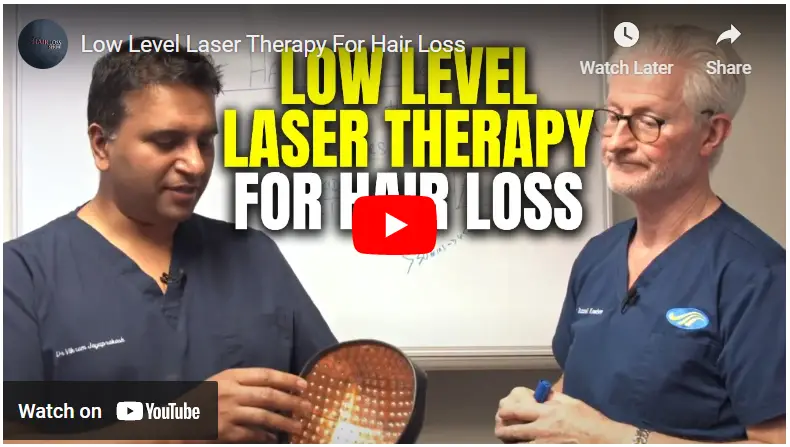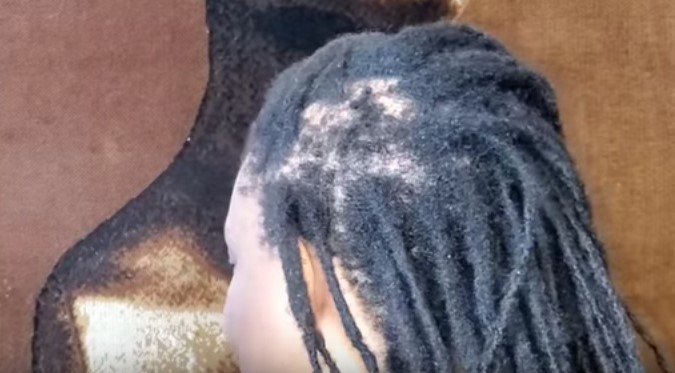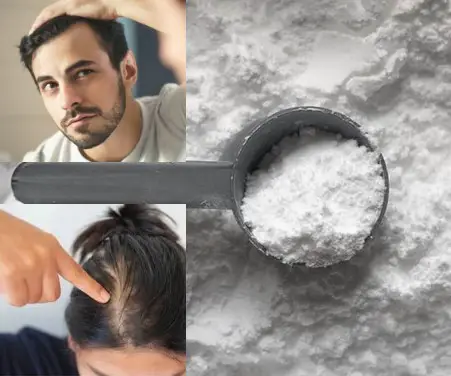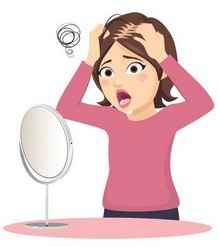Does masturbation cause hair loss? We debunk the myths and explore the science behind this age-old question. Learn the facts about DHT, protein, and hormones.
The topic of masturbation and hair loss has been shrouded in myths and misconceptions for years. From old wives’ tales to urban legends, many people have been led to believe that engaging in masturbation can lead to a receding hairline or even complete baldness. These myths often circulate on social media platforms and forums, perpetuating misinformation and causing unnecessary worry.
However, it’s crucial to separate fact from fiction when it comes to understanding the relationship between masturbation and hair loss. Relying on scientific evidence is the key to debunking these myths and providing accurate information. In this comprehensive guide, we will delve into the science behind hair loss, explore the role of hormones like Dihydrotestosterone (DHT), and examine whether there is any truth to the claims linking masturbation to hair loss.
Key Takeaways:
- Debunking Myths: Understand the origins and common misconceptions surrounding the claim that masturbation leads to hair loss.
- Science-Backed Evidence: Learn about the role of DHT and other hormones in hair loss, supported by scientific studies.
- Real Causes of Hair Loss: Gain insights into the actual factors contributing to hair loss, such as genetics, hormonal imbalances, and lifestyle factors.
- Effective Treatments: Discover FDA-approved medications like Minoxidil and Finasteride, as well as other treatment options including hair transplant surgery and natural remedies.
So, Does Masturbation Really Cause Hair Loss?
No, there is no scientific evidence that masturbation causes hair loss. This myth often circulates from the notion that sē-men contains high levels of protein, and losing it through eja-cu-lation could somehow deplete resources needed for hair growth. While it’s true that sē-men is protein-rich, the amount lost is so minuscule that it’s negligible.
Another popular theory suggests that masturbation boosts testosterone, which then elevates levels of DHT (dihydrotestosterone), a hormone linked to hair loss. However, there’s no measurable impact of sexual activity on testosterone levels, making this theory unfounded as well.
The real culprits behind hair loss are usually a mix of genetics and hormonal imbalances, not masturbation. So, you can put those worries to rest! ?
If you’re concerned about hair loss and are looking for proven methods to combat it, don’t fall for the myths. Instead, explore our guide on effective hair loss treatments and our article on the science behind DHT and hair loss. These resources are grounded in scientific research and offer practical solutions to your hair loss concerns. Discover the real causes of hair loss and how you can take action today.
The Myths and Their Origins
The myths linking masturbation and hair loss have a long and storied history, often rooted in cultural beliefs and societal taboos. These myths have been perpetuated for generations, passed down through folklore and even pseudo-scientific articles. The origins can be traced back to times when sexual health was poorly understood, and masturbation was considered a “sinful” or “unhealthy” act. This lack of understanding paved the way for numerous misconceptions, including the belief that masturbation could lead to various physical ailments, one of which is hair loss.
Common misconceptions often revolve around the idea that masturbation leads to a decrease in vital nutrients or an increase in hormones like Dihydrotestosterone (DHT), which are thought to contribute to hair loss. Some even claim that frequent masturbation can lead to protein deficiencies, thereby affecting hair quality. These myths are not only scientifically unfounded but also contribute to the stigma surrounding both masturbation and hair loss.
If you’ve been misled by these myths and are concerned about your hair health, it’s time to turn to reliable sources. Check out our comprehensive guide on DHT and its effects on hair loss and our article debunking common hair loss myths for accurate and science-backed information. Don’t let myths dictate your understanding; get the facts and make informed decisions about your hair care.
The Science of Hair Loss
When it comes to understanding hair loss, particularly male pattern baldness, it’s crucial to delve into the science behind it. Male pattern baldness, also known as androgenetic alopecia, is a hereditary condition that affects hair follicles, the tiny sacs in the scalp where hair grows. Over time, these follicles shrink, leading to thinner hair and eventually, baldness.
One of the key players in this process is Dihydrotestosterone (DHT), a hormone derived from testosterone. DHT binds to receptors in the hair follicles, causing them to shrink and eventually become inactive. This leads to the gradual thinning of hair and, in many cases, complete baldness. Contrary to popular myths, DHT levels are not influenced by masturbation but are primarily determined by genetics and age.
However, numerous scientific studies confirm the role of DHT in male pattern baldness.
For those interested in a deep dive into the science of DHT and hair loss, we recommend our in-depth article on DHT Blockers role in Women.
Does Masturbation Increase DHT Levels?
One of the most pervasive myths surrounding masturbation and hair loss is the claim that engaging in sexual activity, including masturbation, leads to an increase in Dihydrotestosterone (DHT) levels. This claim has been widely circulated, often cited as a scientific reason to avoid masturbation for the sake of preserving hair.
However, the scientific community largely debunks this myth. Numerous studies have been conducted to investigate the relationship between sexual activity and hormone levels, including DHT. The consensus is clear: there is no significant impact of sexual activity, whether it’s masturbation or intercourse, on DHT levels. In fact, some studies have found no measurable effect on testosterone or DHT production in men with normal sexual function compared to those with sexual dysfunction.
The Protein Myth
One of the most pervasive myths surrounding masturbation and hair loss is the notion that e-ja-cu-lat-ion depletes protein levels, thereby affecting hair health. This claim is rooted in the idea that sē-men contains protein, and thus, frequent e-ja-cu-lat-ion would result in a significant loss of this vital nutrient.
However, this theory is scientifically inaccurate. The amount of protein lost through e-ja-cu-lat-ion is minuscule compared to what is consumed through a regular diet. For context, an egg contains approximately 6 grams of protein, while the average amount of protein in sē-men is so small that it’s not even worth calculating in comparison.
For those interested in the nitty-gritty of protein levels in sē-men, it’s safe to say that the protein you consume through your diet far outweighs any potential loss through sexual activity. If you’re concerned about protein levels and hair health, consider reading our guide on protein-rich foods for healthy hair.
Don’t let myths dictate your lifestyle choices. If you’re concerned about hair loss, focus on proven solutions. Explore our range of FDA-approved hair loss treatments today.
Hormone Balance and Masturbation
One of the more nuanced myths surrounding masturbation is the claim that it significantly affects the hormone balance within the body. This myth often circulates with the notion that masturbation can lead to imbalances in critical hormones, thereby affecting various physiological processes, including hair growth.
However, scientific evidence robustly counters this claim. Multiple studies have shown that the temporary hormonal changes that occur during sexual activity, including masturbation, are not significant enough to disrupt the body’s overall hormonal balance. These transient spikes in hormones like oxytocin and endorphins are natural responses to sexual arousal and activity, but do not have a lasting impact on hormonal levels that could contribute to hair loss.
For those who are still concerned about hormone imbalances and their potential effects on hair loss, explore our comprehensive guide on hormonal balance and hair health. This guide provides evidence-based insights and practical solutions to maintain a healthy hormonal balance.
The Real Causes of Hair Loss
Understanding the root causes of hair loss is crucial for effective treatment. The primary factors contributing to hair loss include:
- Genetic Factors: Often, hair loss is hereditary and runs in families.
- Hormonal Imbalances: Fluctuations in hormones, especially DHT, can lead to hair thinning.
- Lifestyle Factors: Stress, poor diet, and lack of exercise can also contribute to hair loss.
Effective Treatments for Hair Loss
When it comes to treating hair loss, there are several FDA-approved and clinically tested options available:
- FDA-approved Medications: Minoxidil and Finasteride are the most commonly prescribed medications for treating hair loss. These drugs have shown significant results in promoting hair growth and preventing further loss.
- Hair Transplant Surgery: For those looking for a more permanent solution, hair transplant surgery can be an effective treatment. This procedure involves transplanting hair follicles from one part of the body to the balding area.
- Natural Remedies: Some individuals prefer natural treatments like essential oils, herbal supplements, and dietary changes to combat hair loss.
Note: Always consult a healthcare provider for accurate diagnosis and appropriate treatment.
Conclusion
In conclusion, the myths surrounding masturbation and hair loss have been largely debunked by scientific evidence. While many claims suggest a direct correlation between the two, studies have shown that factors like genetics, hormonal imbalances, and lifestyle choices are the real culprits behind hair loss. Masturbation does not significantly affect DHT levels or deplete protein, nor does it imbalance hormones to a degree that would cause hair loss.
If you’re concerned about hair loss, it’s essential to focus on proven causes and effective treatments.
Additional Resources
For those interested in diving deeper into the subject, here are some additional resources:
- The Science Behind Hair Loss: A detailed look at the biological factors contributing to hair loss.
- Natural Remedies for Hair Growth: Explore alternative treatments for hair loss.
- Myths and Facts About Hair Loss: Debunking common misconceptions about hair loss.
- AI Powered Bald Filter Online 2024: See Yourself with No Hair! - January 19, 2024
- Harklinikken Bad Reviews 2024: Analyzing Negative Feedbacks - January 18, 2024
- How to Get the Alex Eubank Hair | Step-By-Step Tutorial 2024 - January 18, 2024












